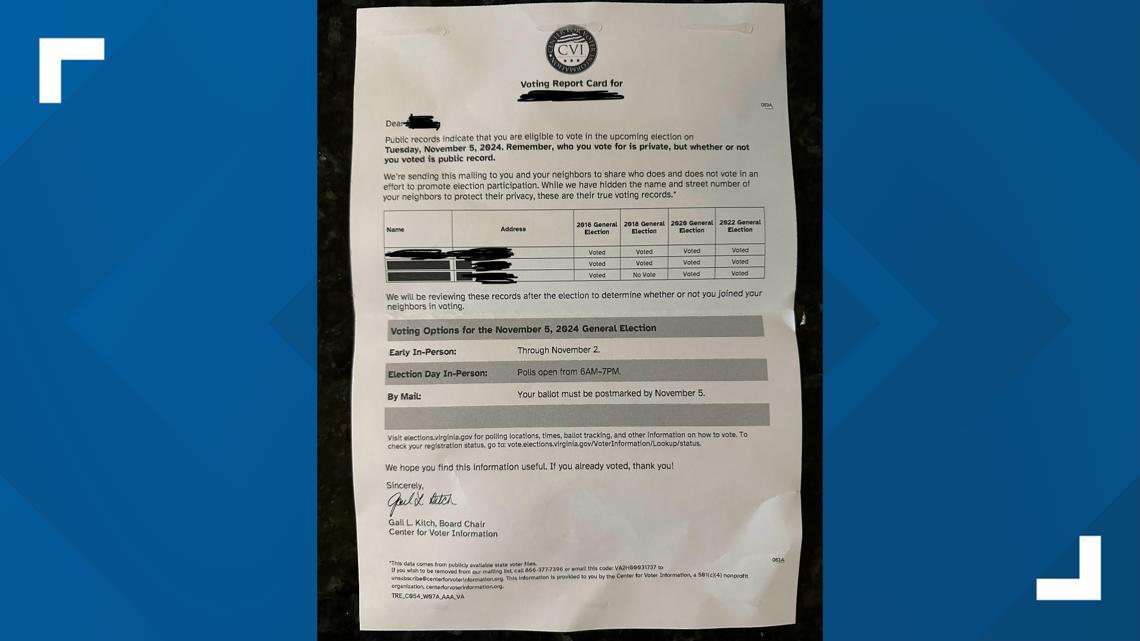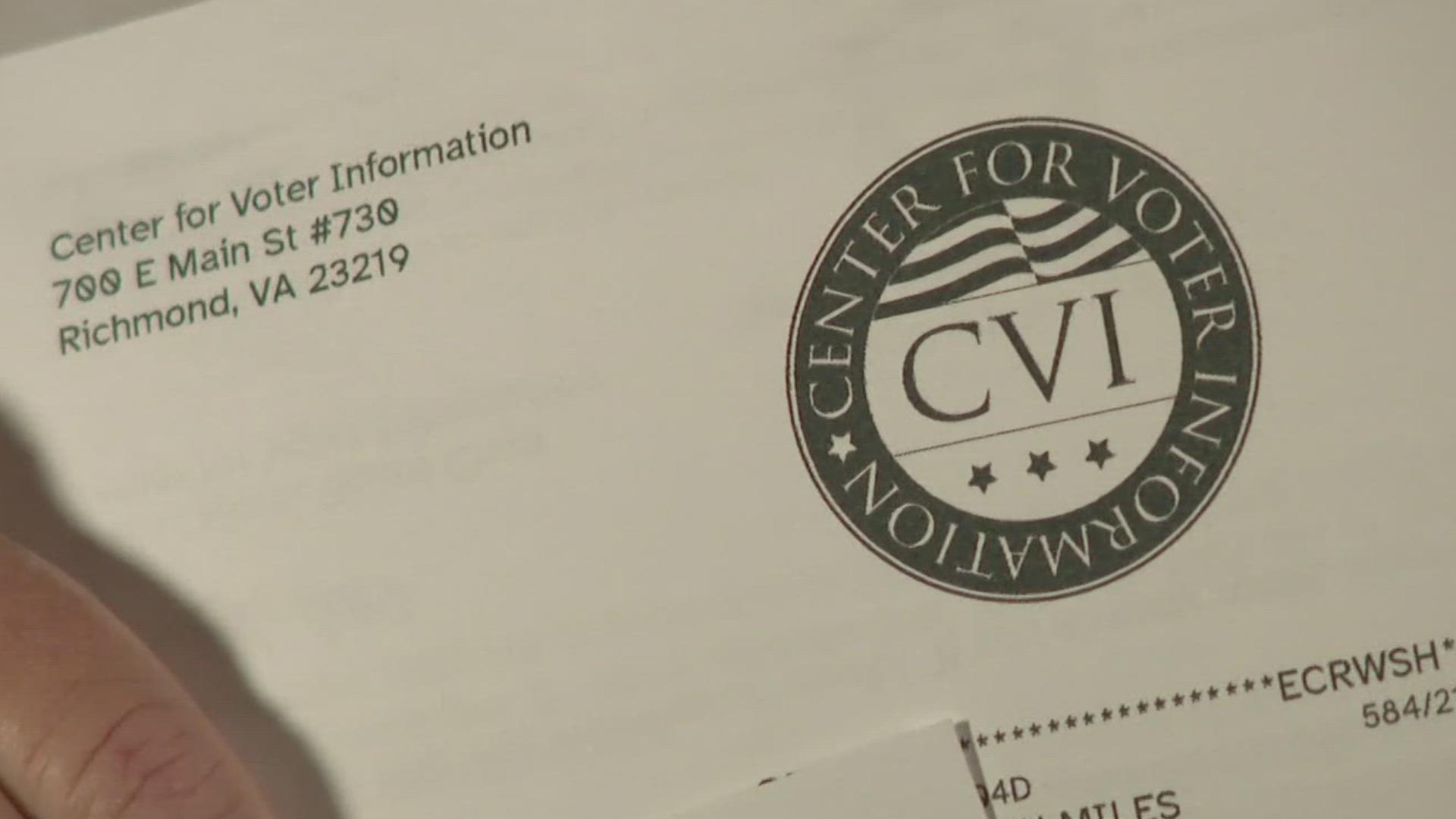WASHINGTON — With Election Day less than a week away, some organizations are getting creative about increasing turnout — and it’s creeping some voters out.
People in Maryland and Virginia have been receiving letters listing not just their voting record, but also the records of two of their neighbors, from two nonprofits, the Voter Participation Center and Center for Voter Information.
The letters claim to be “Voting Report Cards” and list registered voters’ name and full address, alongside whether they voted in the past two presidential and past two midterm general elections. Then, it lists the two more registered voters who live in their area, with their names and specific addresses redacted, and their records in voting in those elections.
Underneath the chart with voting records, the letters say, “We will be reviewing these records after the election to determine whether or not you joined your neighbors in voting.”
Multiple people took to social media to post the letters, calling it out for potential voter intimidation. But the letters also have some people wondering, is this allowed? And what is public and what is private about your vote?
What can people see about your vote?
Who you vote for will always be private. However, whether you voted or not, and whether you are registered in a state is publicly available from state voter files. They’re not always easily accessible, though.
Every state has an online voter lookup tool, intended for voters themselves to ensure they’re registered, locate their polling places and look at their own voting history. Some states make people input their zip code or the last four digits of their social security number for extra privacy.
In Maryland, any voter registered in the state or organizations can apply to purchase the state’s list of registered voters. They can pay $125 for the whole state or $75 for a single district, county or Baltimore city. People who purchase the list can request voters’ names, addresses, party affiliations, sex, dates of birth and voting history. They will not be able to see voters’ social security numbers or driver's license numbers.
In Virginia, lists are available for sale to candidates, incumbents, political party committees, political action committees, commonwealth and federal courts for jury selection, and nonprofit organizations with the intention of promoting voter participation and voter registration. The commonwealth also says, “Members of the public seeking to promote voter participation and registration by means of a communication or mailing without intimidation or pressure exerted on the recipient” are eligible only for a list of those who voted.
Those groups can choose from six lists to purchase, including the registered voter list, vote history list, and list of those who voted. The registered voter list includes voters’ full names, residence addresses, mailing addresses, genders, years of birth, registration dates, dates last registration form was received, registration status, localities, precincts, voting districts and voter identification numbers. The list of those who voted includes the same information, as well as the dates, types and modes of voting in all previous elections a person voted in in Virginia.
In D.C., anyone can request and receive a list of the District’s registered voters. Upon request, they can see voters’ party affiliations, dates of registration, wards, precincts and voter histories.
Are these mailings legal?
Intimidation, threats and coercion are illegal at all stages of the voting process. This includes everything from registering to vote to casting a ballot to counting votes, according to the Department of Justice.
Since the letters don’t tell people to vote or who to vote for and they’re using publicly available information, the mailings are technically legal. Though people online say they find the phrasing of the letters in some places vaguely threatening, because it is not threatening any retribution for not voting, that is permissible as well.
And since they don’t include names or exact addresses of neighbors, it’s not illegal to include their records, because there is no specific identifying information.
The Center for Voter Information says on its website that it provides samples of all of its mailings to top state election officials, “to ensure we comply with all state laws.”
So yes, they are legal — even if they sound a little bit creepy.



